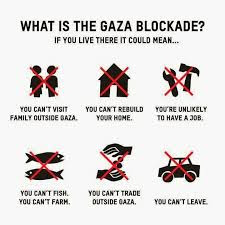PIAG supports this statement opposing Zionism from Jewish Voice for Peace. The illustrations are our own.
Jewish
Voice for Peace is guided by a vision of justice, equality and freedom for all
people. We unequivocally oppose Zionism because it is counter to those ideals.
We know that opposing Zionism, or even discussing it, can be painful, can
strike at the deepest trauma and greatest fears of many of us.
 Zionism
is a nineteenth-century political ideology that emerged in a moment where Jews
were defined as irrevocably outside of a Christian Europe. European
antisemitism threatened and ended millions of Jewish lives — in pogroms, in
exile, and in the Holocaust.
Zionism
is a nineteenth-century political ideology that emerged in a moment where Jews
were defined as irrevocably outside of a Christian Europe. European
antisemitism threatened and ended millions of Jewish lives — in pogroms, in
exile, and in the Holocaust.
Through
study and action, through deep relationship with Palestinians fighting for
their own liberation, and through our own understanding of Jewish safety and
self-determination, we have come to see that Zionism was a false and failed
answer to the desperately real question many of our ancestors faced of how to
protect Jewish lives from murderous antisemitism in Europe.
While
it had many strains historically, the Zionism that took hold and stands today
is a settler-colonial movement, establishing an apartheid state where Jews have
more rights than others. Our own history teaches us how dangerous this can be.
Palestinian dispossession and occupation are by design. Zionism has meant
profound trauma for generations, systematically separating Palestinians from
their homes, land, and each other.
Zionism, in practice, has resulted in
massacres of Palestinian people, ancient villages and olive groves destroyed,
families who live just a mile away from each other separated by checkpoints and
walls, and children holding onto the keys of the homes from which their
grandparents were forcibly exiled.
Because
the founding of the state of Israel was based on the idea of a “land without
people,” Palestinian existence itself is resistance. We are all the more
humbled by the vibrance, resilience, and steadfastness of Palestinian life,
culture, and organizing, as it is a deep refusal of a political ideology
founded on erasure.
In
sharing our stories with one another, we see the ways Zionism has also harmed
Jewish people. Many of us have learned from Zionism to treat our neighbors with
suspicion, to forget the ways Jews built home and community wherever we found
ourselves to be. Jewish people have had long and integrated histories in the
Arab world and North Africa, living among and sharing community, language and
custom with Muslims and Christians for thousands of years. By creating a racist
hierarchy with European Jews at the top, Zionism erased those histories and
destroyed those communities and relationships.
In
Israel, Jewish people of color – from the Arab world, North Africa, and East
Africa – have long been subjected to systemic discrimination and violence by
the Israeli government. That hierarchy also creates Jewish spaces where Jews of
color are marginalized, our identities and commitments questioned &
interrogated, and our experiences invalidated. It prevents us from seeing each
other, fellow Jews and other fellow human beings, in our full humanity.
Zionist
interpretations of history taught us that Jewish people are alone, that to
remedy the harms of antisemitism we must think of ourselves as always under
attack and that we cannot trust others. It teaches us fear, and that the best
response to fear is a bigger gun, a taller wall, a more humiliating checkpoint.
Rather
than accept the inevitability of occupation and dispossession, we choose a
different path. We learn from the anti-Zionist Jews who came before us, and
know that as long as Zionism has existed, so has Jewish dissent to it.
Especially as we face the violent antisemitism fueled by white nationalism in
the United States today, we choose solidarity. We choose collective liberation.
 We
choose a future where everyone, including Palestinians and Jewish Israelis, can
live their lives freely in vibrant, safe, equitable communities, with basic
human needs fulfilled.
We
choose a future where everyone, including Palestinians and Jewish Israelis, can
live their lives freely in vibrant, safe, equitable communities, with basic
human needs fulfilled.
Join
us.
















































